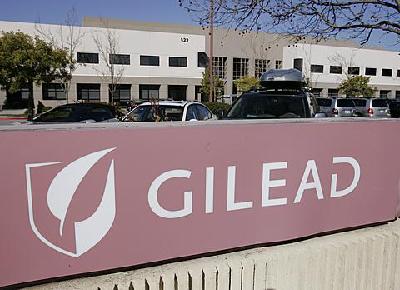New research in Africa confirms that a once-a-day pill, used to treat patients infected with the virus which causes AIDS, also works to prevent HIV infection in healthy people.

For 20-year-old New Yorker James Krellenstein, the battle against HIV and AIDS is not a theoretical one.
Not yet old enough to legally buy alcohol in the US, Krellenstein had a scare recently, which sent him looking for an emergency treatment to keep him from contracting HIV. "I didn't use a condom, I was drunk, it was not necessarily the wisest decision in my life. He could have been HIV positive, he could have been HIV negative, I don't know and I don't want to spend the rest of my life dealing with HIV." he said.
James went on a month-long drug regimen that uses HIV medicines to try to keep the virus from attacking the body's white blood cells and spreading.
Noted AIDS researcher Dr. Anthony Fauci says it's essential that this emergency therapy be applied quickly to stop HIV infection. "Because if it infects one cell and that cell dies but doesn't infect another cell then the infection is over." he said.
Doctors are already using AIDS drugs to prevent infections the way James was treated - as an emergency measure.
But three new studies now seem to confirm that Truvada, a combination pill of two anti-retroviral drugs, may also be effective as a longer-term preventive measure, for people who might be exposed to HIV.
The new studies focused on what's called Pre-ExposureProphylaxis, or PrEP, in heterosexual couples in Africa. They confirm an earlier study showing similar results among gay men.
Dr. Raymond Martins heads an HIV/AIDS clinic in Washington. He says that while using the drugs to treat already HIV-positive patients helps keep them from transmitting it to others, PrEP is also a valuable tool to protect uninfected patients from the virus. "I'm very excited about this. We need a lot of options to prevent new HIV infections and pre-exposure prophylaxis looks like it's going to one of those options." he said.
Researchers say using PrEP provides a 62 to 73 percent chance of preventing infection.
But while using the drugs are effective, they are also expensive.
It's at pharmacies like Whitman Walker Health that government subsidies substantially bring down the cost of these life saving medications. Though Gilead, the manufacturer, has recently made an announcement that will substantially impact the developing world by making the medication available for as low as 21 cents per day.
Gilead has agreed to enter the UN Medicines Patent Pool, allowing their anti-retroviral drugs to be produced as a generic form for use in the developing world for both PrEP and HIV treatments.
Here in the United States, Gilead says once the US Food and Drug Administration approves this use, the company may make the PrEP drugs available through a program that helps those who can't afford prescriptions.
The medicines will still be produced as branded drugs in the United States, costing around $1,500 per month.
James Krellenstein's story is not unique. He's part of the only demographic in America with increasing HIV infections.
The US Centers for Disease Control and Prevention estimates that gay and bisexual men, just four percent of the US male population, are 44 times more likely than heterosexual men to become HIV positive.
"Most of my friends, straight or gay, don't use a condom every time. I try to use a condom every time, I do, as a person who is relatively knowledgeable about this issue, it's scary not to." Krellenstein said.
Despite the benefits of the PrEP drugs, some public health experts worry they may lead to complacency about condom use.
Brant Miller, like other AIDS activists, says he plans to continue aggressively promoting condoms. "It is a good way to prevent the spread of HIV that we've been using and has always worked, and will continue to work regardless of whether or not people have access to PrEP." he said.
James Krellenstein says he is grateful he found a doctor to prescribe him anti-retrovirals, and he credits their use with his remaining HIV negative. He now runs a website called: PEPNow.org which links those seeking treatment with doctors who can help them.
"I think the best way people can protect themselves is if they feel like they're at risk for HIV infection, or after a high-risk sexual encounter, go to your health care practitioner as soon as possible, just so you can know the various options to prevent HIV." said Dr. Martins.
Options that have doctors and patients both hoping this little blue pill, taken daily, will become a game changer in the global struggle to end the AIDS epidemic.
Prophylaxis: 預(yù)防法;預(yù)防
complacency: 自滿
Study says AIDS drugs can raise life expectancy in Africa
How early treatment can limit the spread of HIV
AIDS program targets migrant workers
South Africans urged to take collective responsibility for HIV/AIDS
(來源:VOA 編輯:實習生高美)
